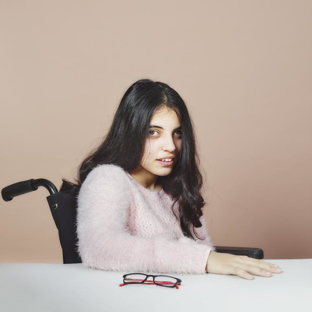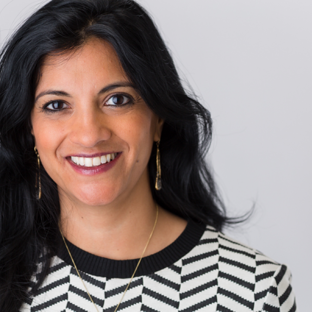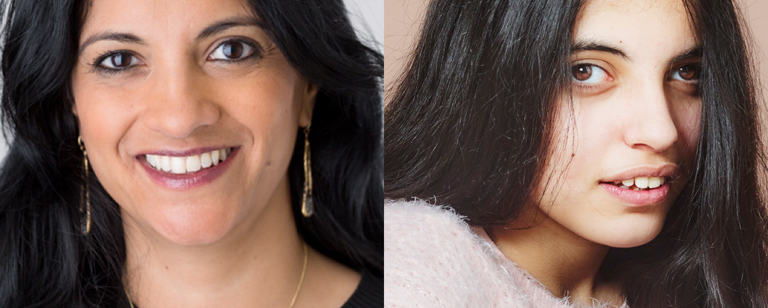More than a billion people live with some form of disability. That’s about 15% of the world's population and yet across the globe, people with disabilities face regular contraventions of their basic rights. These range from egregious abuses – such as being put in shackles – to basic barriers to education, employment, safety and inclusion.
In this conversation, presented in partnership with Human Rights Watch, we'll focus on some key issues and priorities, especially relating to disability rights in the region and in conflict zones. We'll hear from Shantha Rau Barriga from Human Rights Watch and from author and disability rights advocate Nujeen Mustafa. Nujeen's book, Nujeen: One Girl's Incredible Journey from War-torn Syria in a Wheelchair, tells the story of her extraordinary journey from Syria to Germany in a wheelchair – a journey she undertook in 2014 at the age of 16.
The pair will discuss Nujeen’s personal story and speak more broadly on issues of displacement, detention, disability and human rights. Hosted by David Manne.
Presented in partnership with Human Rights Watch.
This event will be Auslan interpreted.
Readings will be our bookseller for this event.
Featuring

Nujeen Mustafa
In January 2014, when Nujeen Mustafa was 16, she began a 5,600 kilometre journey from Syria to Germany in a steel wheelchair. She has since become a powerful advocate for the rights of refugees and for people with disabilities, sharing the harrowing story of her journey to move hearts and change policies. Mustafa was born with cerebral palsy, unable to walk without assistance. In her home city of Aleppo, Syria, she never attended school. She taught herself English by watching American soap operas.
Mustafa’s account was chronicled in a book co-authored by a British journalist and author, Christina Lamb, Nujeen: One Girl's Incredible Journey from War-torn Syria in a Wheelchair. Her persuasive speaking has also encouraged international disability reform efforts.
As the forces of the Islamic State (known as ISIS) and Syrian President Bashar al-Assad escalated their attacks on civilians, Mustafa and her family fled to Turkey. Together with her sister, Mustafa soon embarked on a grueling 16-month journey by foot, boat and bus. They crossed the Mediterranean Sea to Greece and struggled northward through Macedonia, Serbia, and Hungary, finally arriving in Germany.
Throughout the ordeal, Mustafa refused to give in to despair or see herself as a passive victim. As she told a BBC reporter in a now-viral video: 'You should fight to get what you want in this world.'
In a unique partnership with Human Rights Watch, the European Disability Forum and the Norwegian Refugee Council, Mustafa urged senior policymakers in the European Union to re-evaluate their policies regarding people with disabilities in humanitarian crises. The EU commissioner for humanitarian assistance has announced new measures to ensure that the delivery of humanitarian aid meets the needs of people with disabilities.

Shantha Rau Barriga
Shantha Rau Barriga is the founding director of the disability rights division at Human Rights Watch. She leads research and advocacy on human rights abuses against persons with disabilities worldwide including: the shackling of people with psychosocial disabilities, denial of education for children with disabilities, violence against women and girls with disabilities, institutionalisation of children and adults with disabilities, and the neglect of people with disabilities in humanitarian emergencies.
She has worked on projects on Australia, Brazil, Central African Republic, China, Croatia, Ghana, India, Indonesia, Iran, Morocco, Nepal, Peru, Russia, Serbia, South Sudan, Tanzania, Uganda, the United States and Zambia.
Shantha is a founding member of the International Network of Women with Disabilities, member of the Amnesty International Advisory Group on Disability Rights, expert advisor to the Catalyst for Inclusive Education Initiative and a senior advisor to the Global Campaign for Mental Health. She also served on the UNICEF Advisory Board for the 2013 State of the World’s Children report.
David Manne
David Manne is a human rights lawyer and Executive Director of Refugee Legal (previously the Refugee & Immigration Legal Centre (RILC)). He has worked in various capacities assisting refugees and asylum seekers for over 20 years. In January 2001, he joined Refugee Legal, at the forefront of defending the rights, the dignity and the lives of asylum seekers, refugees and disadvantaged migrants.
David sat on the Board of the Refugee Council of Australia for seven years, and currently the Victorian Foundation for Survivors of Torture Ethics Committee, and a number of peak Government consultative bodies. He has also been appointed to the UN High Commissioner for Refugees Advisory Board of Eminent Persons. He has been invited to attend and present at the UN High Commissioner's Dialogue on Protection Challenges on numerous occasions.
David has been the recipient of numerous prestigious awards, including the Law Institute of Victoria Paul Baker Prize for Administrative and Human Rights Law, the Law Institute President’s Awards (2006 and 2011), was shortlisted for the Australian Human Rights Commission Human Rights Medal in 2011 and been frequently named as one of Australia’s Leading Immigration Lawyers in the Australian edition of Best Lawyers.
David headed Refugee Legal’s legal teams in successfully arguing 10 out of 10 High Court challenges, including the cases of Plaintiff M61 (regarding the Government’s ‘offshore processing’ regime in Australia); Plaintiffs M70/M106 (the ‘Malaysia Solution’ case); Plaintiff M47 (challenging security assessment and indefinite detention of a refugee); Plaintiff M76 (regarding indefinite detention of a refugee on security grounds); Plaintiff M150 (challenge by a 15 year old unaccompanied refugee in relation to the Government’s attempt to bar permanent protection through a visa cap); and Plaintiff S89 (challenging a Government regulation designed to bar boat arrivals from permanent protection).
